|
By: Josh Sloat
Updates on the Patent Wars Saga
We're excited to introduce the Mossoff Minute: a monthly Patently Strategic Podcast segment designed to keep you informed on significant events in the patent world – particularly those events relating to the battle that rages on between the ragtag group of rebels fighting to restore our patent system to its former Gold Standard against the all too powerful forces spending billions to destroy the ladder they once climbed up on. This segment builds on our Patent Wars episode, and features short conversations with Professor Adam Mossoff, providing updates and quick takes on movements in patent reform, significant court rulings, innovation policy happenings, and occasional Star Wars references. We also publish 60 second videos from these segments to TikTok, Instagram Reels, and YouTube Shorts.
Mossoff Minute: Amgen v. Sanofi
Below is the first ever Mossoff Minute, covering the Supreme Court's recent ruling in Amgen v Sanofi and its impact on patents and innovation in the life sciences, pharma, and biotech industries.
About Professor Adam Mossoff
You might remember Adam from his involvement and exceptional insights shared in our Patent Wars episode where we discuss both the biggest problems facing patenting, as well as the best possible solutions for reform:
Or from an even more recent interview, where we discuss the history and purpose of patents in society. We couldn’t have asked for a better historical tour guide or contemporary ambassador for this important topic. Adam is a wellspring of knowledge in this domain and makes the history come to life – and connects it with modern times – in ways we could only wish our history professors had.
1 Comment
By: Josh Sloat
Short-Form Patent Videos
We are now officially on Instagram Reels, YouTube Shorts, and TikTok! We'll regularly be publishing short-form videos about all things patents, including:
By: Staff
How to Read and Understand Patents
What’s actually in a patent? How do you read a patent? What can you learn from reading one? And where do you even find them in the first place?
Patenting can be such an essential part of early startup years, but it’s a very complex domain, with loads of special vocabulary, and all of that can make it seem less accessible than it was really designed to be. The following is a guided tour, taken through the anatomical lens of the most intrinsic and tangible piece of the process – the patent application. Our goal in sharing this is to reduce the barrier of entry, unlock for you one of the greatest libraries in the world, and help set you up with clear eyes going into your own patent journey. It’s through the understanding of a patent's structure and parts, that you’ll quickly begin to see more clearly how the broader world of patenting works! We will break down the key anatomy, cut through the arcane terminology, and provide tips on how you can use that information for your competitive advantage. By the end of this article you’ll know where to find patents, how to read patents, and what you can – and cannot – learn from patents. What is a patent?
A patent is a Constitutionally created property right granted for an invention and is one of several ways to protect intellectual property. A patent is essentially a deal between the applicant and the United States government, in which if the patent is issued, the patent owners are granted a limited monopoly of 20 years, with the exclusive right to prevent others from making, using, offering for sale, or selling the patented invention. The other half of the bargain is that this government-granted window of exclusivity is traded in exchange for an enabling public disclosure that teaches the public how to make and use the invention. This disclosure happens through the publication of a patent application. The purpose of this deal is to advance the welfare of the country by promoting the long term progress of science and the useful arts.
What is a patent application?
A patent application is basically a specially structured letter to the patent office that describes an invention and recites some claims that the inventor believes she's entitled to. It facilitates the public disclosure and is the basis of a protracted conversation between the patent office and examiner and the patent office and the applicant – a process that is called patent prosecution. Inventors can draft, file, and prosecute on their own or work with the assistance of a registered agent who can do these things on their behalf. Once you submit your patent application, you will have the right to claim patent pending status.
Why get a patent?
A granted patent confers upon its owner exclusive rights to exploit the invention commercially, including the monopoly to manufacture, use, and sell the invention. The recognition of a legally-binding monopoly position allows inventors to monetize their invention, while simultaneously preventing others from doing so. The decision to obtain a patent can be influenced by a range of factors, such as the nature of the invention and the specific industry. In sectors such as biotechnology, a patent can serve as a key attractor of investment and a catalyst for licensing opportunities. It could be the deciding factor for the success or failure of a startup. On the other hand, such as in consumer goods industries, a patent can be leveraged as a marketing tool, and can facilitate more favorable negotiations with suppliers, customers, and partners.
A patent is also an important tool for protecting your idea before talking with others. This is definitely something you want to consider doing before marketing an invention or attempting to pitch your product or company to investors. Public disclosure or offer for sale without filing a patent application puts you at a tremendous risk for idea theft. In fact, public disclosure before filing a patent application, is one of the top mistakes we see among inventors, that can make later patentability much more difficult, if not impossible. A patent can serve as a key attractor of investment and a catalyst for licensing opportunities. It could be the deciding factor for the success or failure of a startup. Why not get a patent?
Obtaining and maintaining a patent involves a significant investment in both time and monetary resources. While a granted patent offers a legally recognized monopoly and potential protection, it also requires public disclosure of the invention's details. This information becomes a matter of public record and can potentially provide valuable insights to competitors. Enforcing a patent against infringement can be a complex and costly process. In certain circumstances, it may be more advantageous for the inventor to maintain the confidentiality of the invention as a trade secret rather than seeking patent protection.
Who reads a patent?
Beyond understanding what a patent is and why you do or don’t need one, it helps to understand who it’s written for. Over the course of its life, an application can have multiple audiences – all with very different roles to play and goals in consuming and interpreting. Who all might look at an application and why?
Patent Office Examiner. A patent’s first audience is going to be an examiner at the Patent Office. You and your patent practitioner will work with the examiner through the process of prosecution as you move your patent application toward a granted patent. The application will face a very high level of scrutiny from examiners because the office will need to assess it for various metrics (e.g., usefulness, novelty, obviousness, and enablement) based on the Patent Office rules and procedures. Investors. After getting your patent pending designation (by filing a provisional, nonprovisional, or international patent application), you can now approach investors with a safeguard in place. This will be a much higher level look and will largely be focused on what kind of protections the patent affords, but patent quality still matters a great deal. In an early stage company, funding is critical for survival, so you want the investor to believe in your technology. Courts/PTAB. Once you have a granted patent, you may either need to assert your rights against infringers or potentially defend against someone trying to invalidate your patent. This could (unfortunately) involve proceedings at the USPTO with the Patent Trial and Appeal Board or within the court system including District Court, Federal Circuit Court, and maybe even the Supreme Court. This audience can include lawyers, judges, and jurors – all with varying degrees of technical and legal expertise. A person skilled in the art. Going back to the grand bargain mentioned above, the ultimate intended audience (from the government’s perspective anyway) is a person skilled in the art, who is looking to build or build upon the idea – and hopefully with a lucrative license from you! In legal parlance, you will also often see this referred to as "a person having ordinary skill in the art” or PHOSITA, and is the patenting persona of a person who has an average knowledge/skill level in a particular art. What can I learn from a patent?
We break the parts of an application down in great detail in sections to follow, but it is helpful, at a high level, to understand the kinds of information you will and won’t find in a patent. You will be able to find the following in any published or issued patent application:
What won’t I learn from a patent?
There is also a fair amount of invention and patent associated data that you might expect to find in a patent that you won’t. This is largely due to the static nature of the document once published or issued. The patent is frozen in time and will not tell you what happened later. You will not find the following in a patent:
Some of this information is freely available in other tools like the USPTO’s Patent Center, via other private, paid databases like LexisNexis, and via old school methods like picking up the phone. What is the difference between a published application and an issued patent?
One point of confusion we often see, especially among inventors newer to patenting, is in the difference between a published application and an issued patent. The difference between a published application and an issued patent lies in the stage of the patent prosecution process we mentioned earlier. Patent prosecution refers to the interaction between the patent applicant and the Patent and Trademark Office (PTO) examiner. The PTO examiner ensures that the claimed invention is useful, novel, and non-obvious. If the claims don't meet the standards, the examiner raises objections and the applicant can modify the claims or argue with the examiner.
A published application is the initial document filed by the applicant, including the claims they want to protect. It’s worth mentioning that the application gets published 18 months after its initial filing date whether or not it results in an issued patent unless there’s a non-publication request. An issued patent, on the other hand, is a granted patent that has gone through prosecution and has claims that have been approved by the examiner. Everything else about the document will be the same as the published application.
Practical tip: The distinction between the two can be identified by looking at the upper right-hand corner of the document. A published application has a "Pub. No." label, while an issued patent has a "Patent No." label. The published application also has a 7-digit number preceded by the year of publication, while an issued patent has a 6 or 7 digit number.
What are the types of patents?
There are several different types of patents to consider, depending on the nature of your invention and what aspects you’re looking to protect.
Sections of a Patent Application
A patent application has the following four sections: (1) Front/cover page(s), (2) Drawings, (3) Specification, and (4) Claims
(1) Front/cover page(s) The front page(s) of a patent typically include the Title, an Abstract, and Drawings. These provide a summary of the invention, but are not the main sources for determining the scope of the patent. The cover sheet is usually prepared and filed by the Patent and Trademark Office (PTO) when the patent is published, based on information provided by the practitioner. (2) Drawings The Drawings (also commonly referred to as figures) in a patent are intended to help the reader understand the invention and typically show all the elements claimed. For many types of applications, the figures can basically function as a storyboard for explaining the invention. Exceptions are rare, such as for chemical compounds, but most US patents include drawings. If a drawing is labeled as "Prior Art", it documents related processes that existed before the invention and is not part of the claimed invention. (3) Specification The specification, which follows the front page, provides context for interpreting the claims section. It usually includes the following elements:
Practical tip: The background can be the best starting point for a reader, as it provides an understanding of the inventors' perspectives on the current state of the field and any problems or deficiencies they aim to address.
Defining new things sometimes requires new vocabulary. The specification also gives inventors some flexibility in defining terms (usually in the Detailed Description), as they are essentially their own lexicographer. Terminology and definitions can be included in the specification, and the claims are interpreted in part based on these definitions, as well as the general state of the art and the plain meanings of terms at the time of filing. (4) Claims The Claims section is the heart of a patent application and is located at the end of the document. The Claims are the main focus of an application and are the subject of argument during prosecution. They are reflected in the Summary, Detailed Description, and Abstract sections. Old West Metaphor. In trying to break down some of this vocabulary, it can be helpful to think of claims in the context of an old west metaphor, where the patent claims are likened to a mining or homestead claim. An old west claim would need a map of the context, the surrounding landscape, and a clear delineation of the exact boundary of the mine being claimed within the surrounding landscape. Everything else in a patent application largely exists to provide context for the invention claims, but the claims themselves point out the exact boundaries of what the inventor believes they are entitled to own. Claims Define Infringement. The main purpose of claims is to be able exclude others from making or using the invention. An issued claim provides the claim owner with a monopoly for a limited time period (20 years from filing) and can be very valuable. The claim owner can sue for infringement if someone is practicing the invention. The basic question in infringement cases is whether every element of the claim is being practiced by the alleged infringer. If I have claimed A, B, and C – and someone tries to just copy A and B on the path to doing something else, that is not infringement. If someone copies A, B, and C, that is infringement. If someone copies A, B, C, and adds D, that is infringement, but that person could still file to patent D, but would not have freedom to operate D without obtaining a license from you for A, B, C. Ninety percent of the mental exercise in drafting patents is in the strategy of looking around corners, anticipating the future, and trying to capture as many would-be infringers as possible. Ninety percent of the mental exercise in drafting patents is in the strategy of looking around corners, anticipating the future, and trying to capture as many would-be infringers as possible. Where can I find patents and their related information?
The universe of patent literature is one of the great libraries of the world – and it's free! The amount of stored knowledge is truly under appreciated. Once you know how to search or you have someone searching for you, you can learn just about anything!
To find and download a patent or patent application, you can use the following free search sites:
If you're looking for professional assistance, you can also reach out to practitioners or search firms who have access to additional databases and can provide deeper analysis. If you're interested in learning more, we encourage you to check out our episode on Patent Searching.
Related Resources
Authors & Contributors.
By: Josh Sloat
Welcome aboard!
We're excited to announce that we're welcoming Gabrielle Krakow to the Aurora family this summer! Gabrielle joined us in June, starting her role as our Growth and Tech Intern. She will work alongside me in educational content creation, short-form video development, SEO improvement, and internal workflow optimization.
Gabrielle is an undergraduate at Yale University majoring in Computer Science and Economics. She has experience in the technology industry, including developing two award-winning mobile applications. Gabrielle has also worked in the Yale Strategic Communications Department, live-tweeting and creating Instagram graphics for the Yale women's basketball team.
By: Josh Sloat
Why do patents exist in the first place? What function do they serve in society? And what is their historic origin story? In this month’s episode, with the help of Professor Adam Mossoff, we zoom way out, turn the time dial back a bit, and focus on the genesis of patents. Democratizing the Bridge to Innovation
There’s a special kind of magic that happens when individual incentives align with societal good. Abraham Lincoln, who believed that the creation of the patent system was only surpassed by the discovery of America and the invention of the printing press in terms of the three greatest advancements in human history, once said, “The Patent System added the fuel of interest to the fire of genius, in the discovery and production of new and useful things”.
The recognition and protection of mental labor and the fruits of the mind as natural property rights enabled any inventor – big or small – to profit from their discoveries and partner with those possessing the resources necessary to scale and bring new products and services to the marketplace. The exchange of this protection for an enabling public disclosure enhanced society and accelerated the pace of innovation by facilitating the open exchange of information and created the greatest free library of science and technological information in the world. And because the economy grows and society flourishes when innovation is encouraged, the world was transformed in the 19th and 20th centuries as demonstrated by the scientific and technological revolutions that define our modern society and by virtue, created the greatest hockey stick graph in history. Seeking the Cure for Societal Amnesia
But somewhere along the way, we lost sight of this. Patents became a victim of their own success. Their impact on society, the economy, and innovation became both ubiquitous and too often unseen at the same time. This episode is the start of our effort to help undo this collective societal amnesia about the significance of patents as the primary driver in society for encouraging innovation, promoting public disclosure, facilitating technology transfer, and stimulating economic growth.
Episode Overview
Our Guest: Professor Adam Mossoff
Availability
Patently Strategic is available on all major podcasting directories, including Apple Podcasts, Spotify, and Google Podcasts. We're also available on 12 other directories including Stitcher, iHeart Radio, and TuneIn, so you should be able to find us wherever you listen to podcasts.
Resources
Related Episodes
Related Reading Connect With Our Guest You can follow Adam on Twitter at @AdamMossoff, where he posts regularly on patent and innovation policy, including his excellent “this Day in Innovation History” tweets. Transcripts We're also providing computer-generated transcripts for improved accessibility and additional reference opportunities.
By: Josh Sloat
2023 RISE Award: Free Patent Protection
So many innovators need great patent protection at the time when they can least afford it. This is one of many reasons we're excited to announce that we're now officially accepting applications for the 4th Annual Recognition for Innovative Startup Excellence (RISE) Award! For the selected applicant, we will work closely with you and your team of inventors to provide one of the following:
We'll be accepting applications through the month and announcing the winner later this summer.
Protect Before You Pitch
It's tempting to overlook the expense of patenting, especially before you've secured funds, but one of the biggest mistakes we regularly see from inventors is publicly disclosing their idea before filing for patent protection. This comes with tremendous risk. You can lose all ability for international protection and potentially for the U.S., as well, depending on timing. Further, most investors are not willing to sign NDAs, so when pitching, you have little to no protection when sharing your idea if you haven't first applied for a patent. If you're thinking about taking your idea public or approaching investors, but financial constraints have you waiting on patents, you should strongly consider this award.
Past Winners
To learn more about the history of this award, it's past winners, and how it's helped in their innovation journeys, check out our Inventor Stories episode from Season Two of the Patently Strategic Podcast.
Apply Now!
We're taking applications starting now and going through June 30th. Click the button below to apply using our simple application and don't hesitate to reach out with any questions. Good luck and we can't wait to learn more about you and your innovations!
By: Josh Sloat
What do investors want to see in patents? What do patents tell a potential investor about a founder? And what do investors wish inventors knew before coming to them? To answer these questions and more, we're joined this month by Dr. Sridhar Iyengar, an angel investor and accomplished serial entrepreneur in the medical devices and wearables space. Having been on both sides of the table, Dr. Iyengar's unique insights provide a comprehensive understanding of the essential role that patents can play in securing funding and in your company's long term success. Sridhar and I are also joined today by:
Availability
Patently Strategic is available on all major podcasting directories, including Apple Podcasts, Spotify, and Google Podcasts. We're also available on 12 other directories including Stitcher, iHeart Radio, and TuneIn, so you should be able to find us wherever you listen to podcasts.
ResourcesRelated Episodes
Related Reading
Transcripts We're also providing computer-generated transcripts for improved accessibility and additional reference opportunities.
By: Josh Sloat
Collaboration with Consequences
How does the use of or contribution to open-source software impact your intellectual property rights?
In this month's episode, we’re talking about software and the convoluted risk/reward interplay between patents, copyrights, and open source. Use of free open-source code can be an invaluable tool when building complex software applications. Why reinvent wheels? And depending on resources and budget, sometimes it’s the only practical way. But like with most things, free often isn’t really free. The cost is just transferred somewhere else. When it comes to open source, these short term savings can have significant long term consequences for your intellectual property rights.
We'll discuss answers to these questions and more. Kristen Hansen, Patent Strategist and software patent guru here at Aurora, leads a discussion along with our all star patent panel, exploring:
We look at concerns through the eyes of both users and authors of open source. And pragmatically as we can, highlight how it’s possible to construct a strategy where open-source innovation is encouraged without forgoing all future earning power and without blocking others from using it.
Kristen has worked both as a Software Engineer and a Software Patent Agent for the last two decades. She has worked closely with software inventors from Big Tech Valley giants looking to utilize open-source software, while still maintaining their assertable patent portfolios. We couldn’t think of a better person to lead this conversation! Kristen is also joined today by our always exceptional group of IP experts including:
Availability
Patently Strategic is available on all major podcasting directories, including Apple Podcasts, Spotify, and Google Podcasts. We're also available on 12 other directories including Stitcher, iHeart Radio, and TuneIn, so you should be able to find us wherever you listen to podcasts.
ResourcesRelated Episodes
Transcripts We're also providing computer-generated transcripts for improved accessibility and additional reference opportunities. Slides For the visual learners out there, we also like to make our presenter slides available for your reference.
By: Josh Sloat
How to Turn Ideas Into Successful Start-ups
Join us in-person April 13th and 14th at New Mexico Tech for an immersive workshop designed for inventors, investors, and entrepreneurs! This event is devoted to creativity, innovation, and the progression of ideas to market – and presents an exceptional opportunity to network with a highly focused group of innovators. We're sponsoring this event and our very own NMT alum, Ty Davis, will be hosting a booth. Be sure to stop by, say hello, and ask about our inventor notebooks!
Date: Thursday April 13th and Friday April 14th, 2023 Location: Fidel Student Union Building | New Mexico Tech | Socorro, New Mexico
By: Josh Sloat
Illustration: Declan Wrede
Patent Reform Solutions
In this month’s episode, we’re talking about the patent reform solutions needed to save the innovation economy, with the revolutionaries who are leading the charge!
Over the course of the past couple of months, we've had the opportunity and honor to host conversations with thought leaders across the patent world:
Working from their insights, this episode explores the biggest problems plaguing patenting and how those problems impact the innovation economy that so very tightly depends on strong, predictable, and reliable patents. Building on that understanding, we work toward getting a more complete view of the legislative, judicial, and educational solutions needed to get back to the gold standard patent system. In doing so, we not only talk with our guests about their support for the proposed solutions on the table, but we also explore the strongest criticisms.
Patent System at the Precipice
Nearly two decades worth of Federal Circuit and Supreme Court rulings have thrown the patent system into disarray and weakened patent rights for inventors. Subject matter eligibility is a confused, chaotic mess – leaving even the Federal Circuit Chief Justice at a loss on how to determine eligibility. The muddied state of invention enablement puts at risk the software innovations fueling economic growth and the key life science innovations that can save lives. Court interventions on injunctions have made it all but impossible for patent owners to stop others from using their property rights without permission, turning predatory infringement into an efficient business model. This already perfect storm was compounded by an act of Congress a decade ago that inadvertently created a patent killing machine that has weaponized the patent office against inventors. This has all been bolstered domestically by the deep pocketed marketing and lobbying campaigns of a big tech industry that is now destroying the ladder it once climbed up on. Amplifying the threats within and heightening the sense of urgency for solutions, international exploitation in an undeclared cold war has led to one of the greatest wealth transfers in human history – and begs the existential question of who is going to develop the technologies of tomorrow.
Revolutionaries on Reform
The problems are many and the stakes couldn't be higher, but hope is far from lost! With the help of our guests who are working tirelessly toward undoing the evisceration of our patent system, we explore the virtues and viabilities of a wide array of potential solutions to the biggest problems plaguing patenting:
The Innovation Race
We’ve been wanting to do a patent reform focused episode like this for a long time, particularly since we covered US Inventor’s 2021 Decade of Stolen Dreams rallies with our American Inventor Horror Story episode – it was then that we truly witnessed firsthand just how devastating the America Invents Act and the PTAB have been for inventors. Flash forward a couple of years to present, and the makers of a new documentary entitled, “The Innovation Race” reached out to us to screen their film.
With bipartisan interviews with folks like Senator Chris Coons from Delaware and Representative Thomas Massie from Kentucky, combined with a myriad of inventors, judges, generals, law professors, and policy experts, several of whom you’ll hear from today, the movie breaks down this systematic erosion of intellectual property rights and explains the imminent economic and national security threats of China exploiting these weaknesses in US patent protection. You can find options for streaming and learn more at innovationracemovie.com. The end of the film, which touches on solutions, provides a launching point for our discussion today. Availability
Patently Strategic is available on all major podcasting directories, including Apple Podcasts, Spotify, and Google Podcasts. We're also available on 12 other directories including Stitcher, iHeart Radio, and TuneIn, so you should be able to find us wherever you listen to podcasts.
ResourcesRelated Episodes
Related Reading Transcripts We're also providing computer-generated transcripts for improved accessibility and additional reference opportunities. Connect with Our Guests
|
Ashley Sloat, Ph.D.Startups have a unique set of patent strategy needs - so let this blog be a resource to you as you embark on your patent strategy journey. Archives
April 2024
Categories |

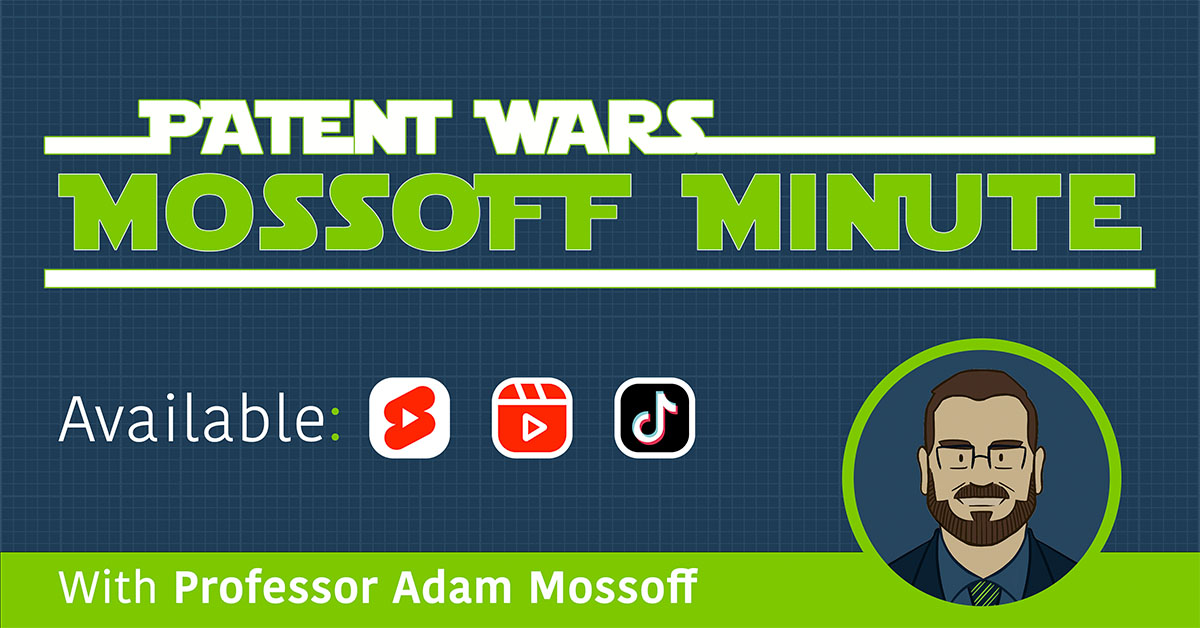
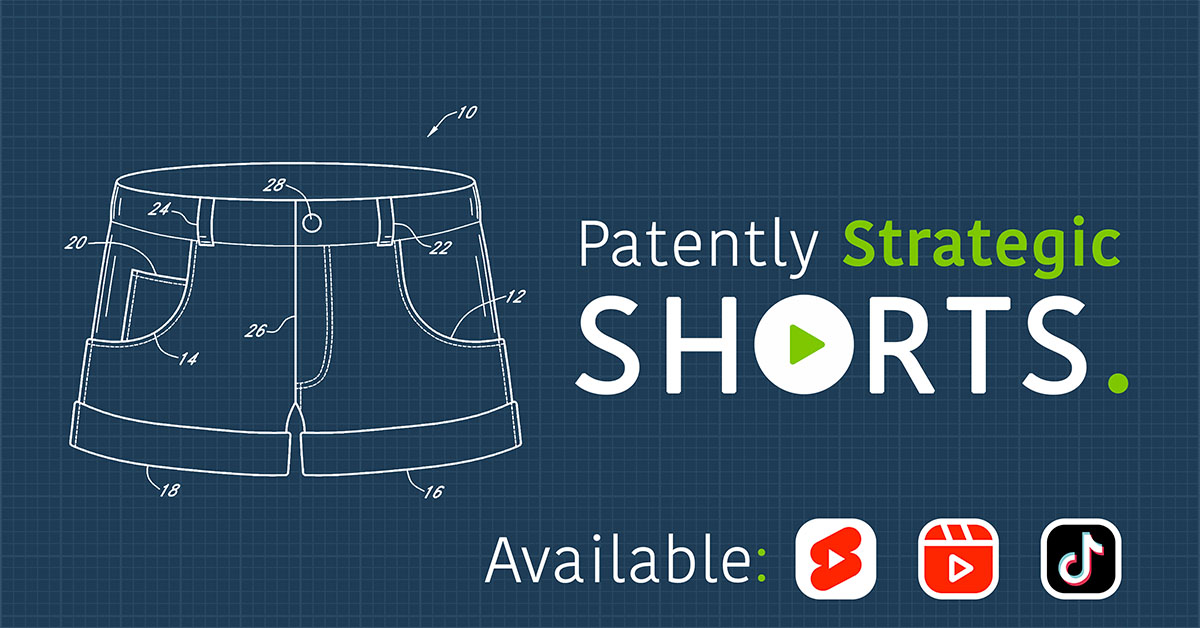
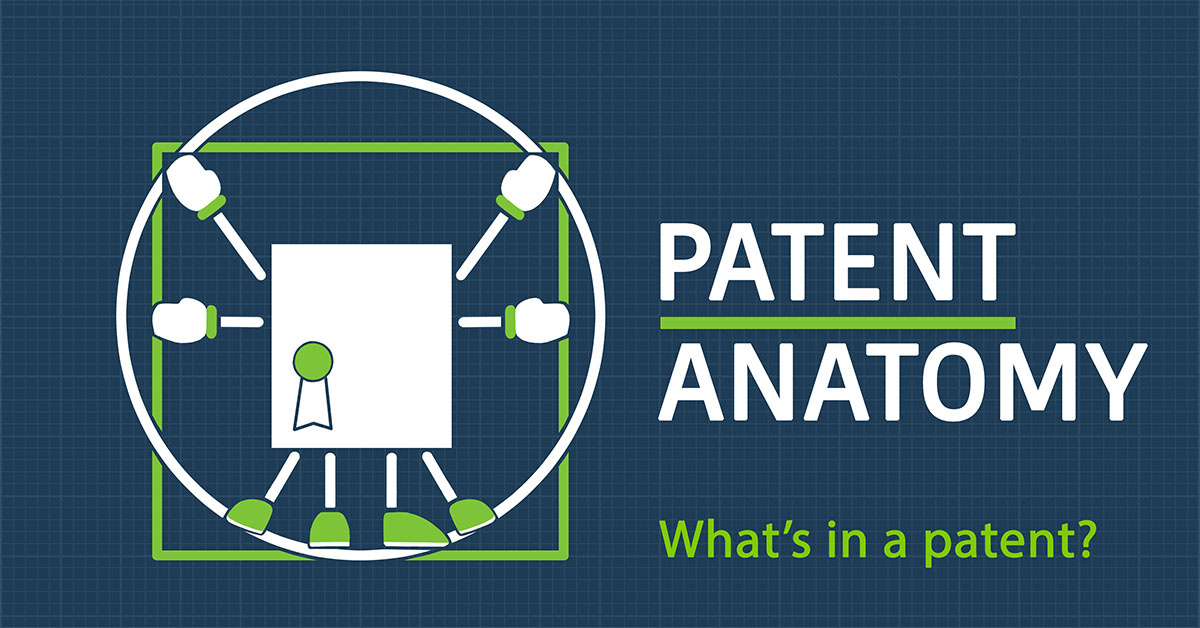
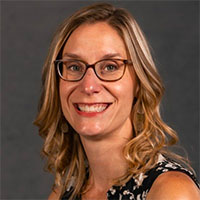



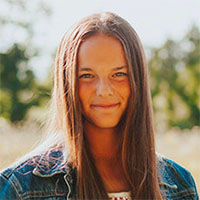
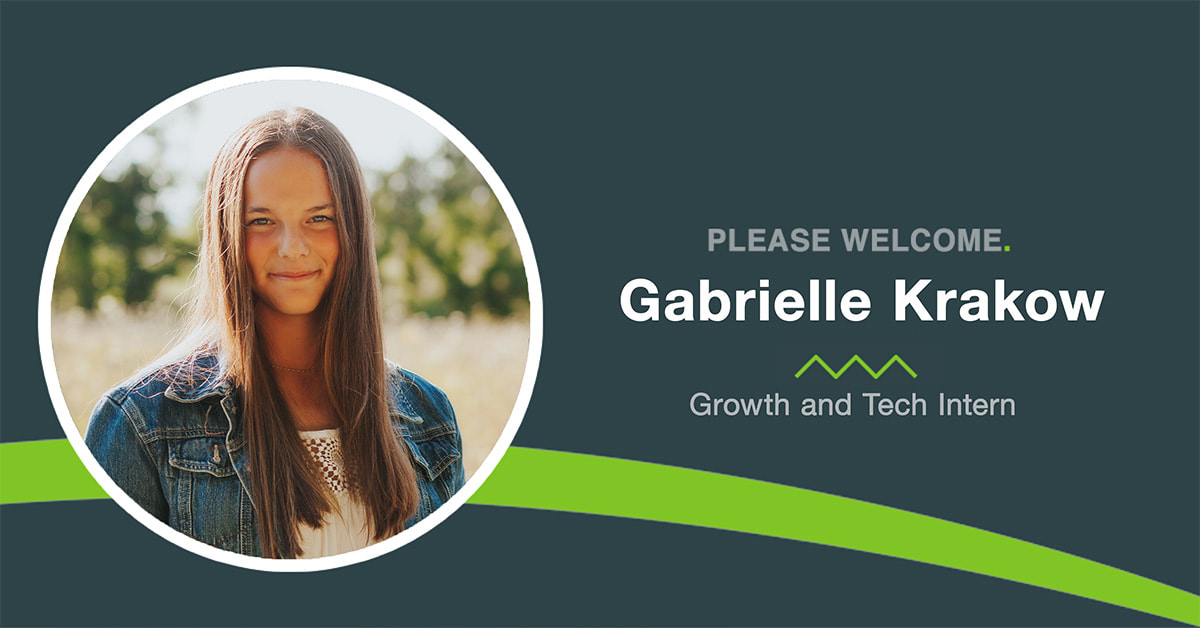
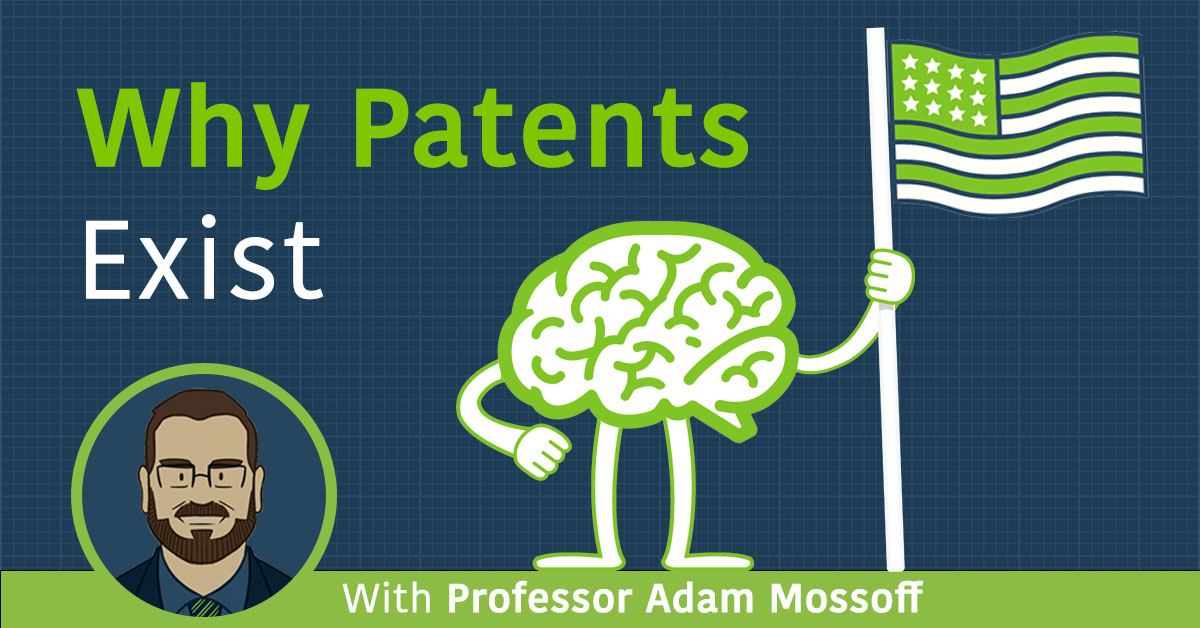



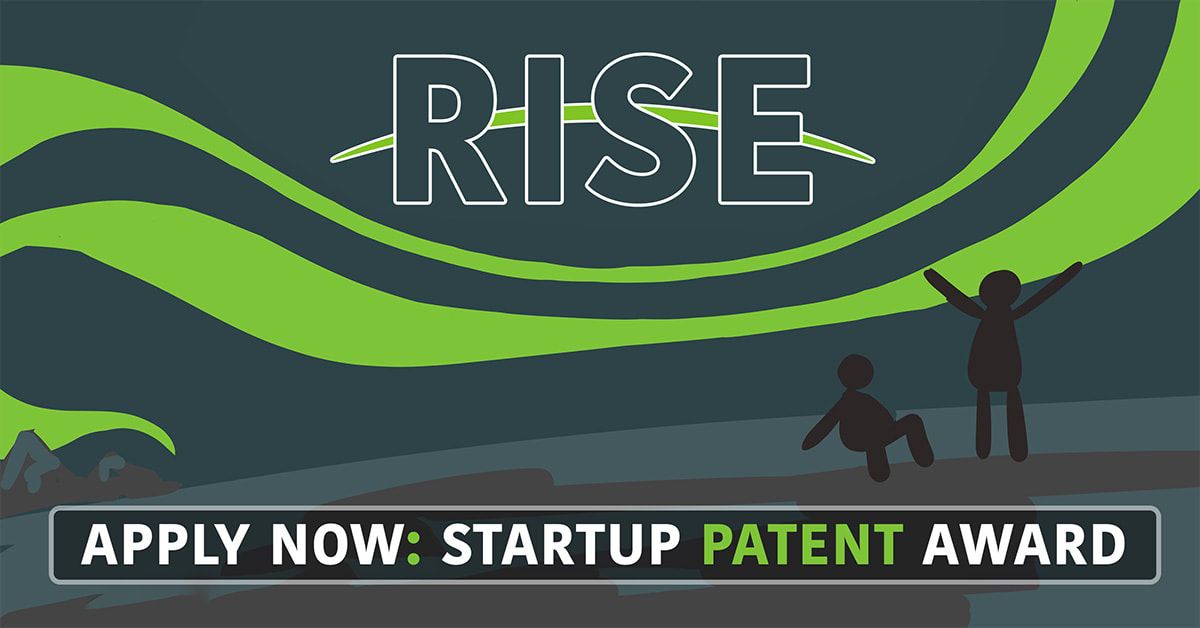
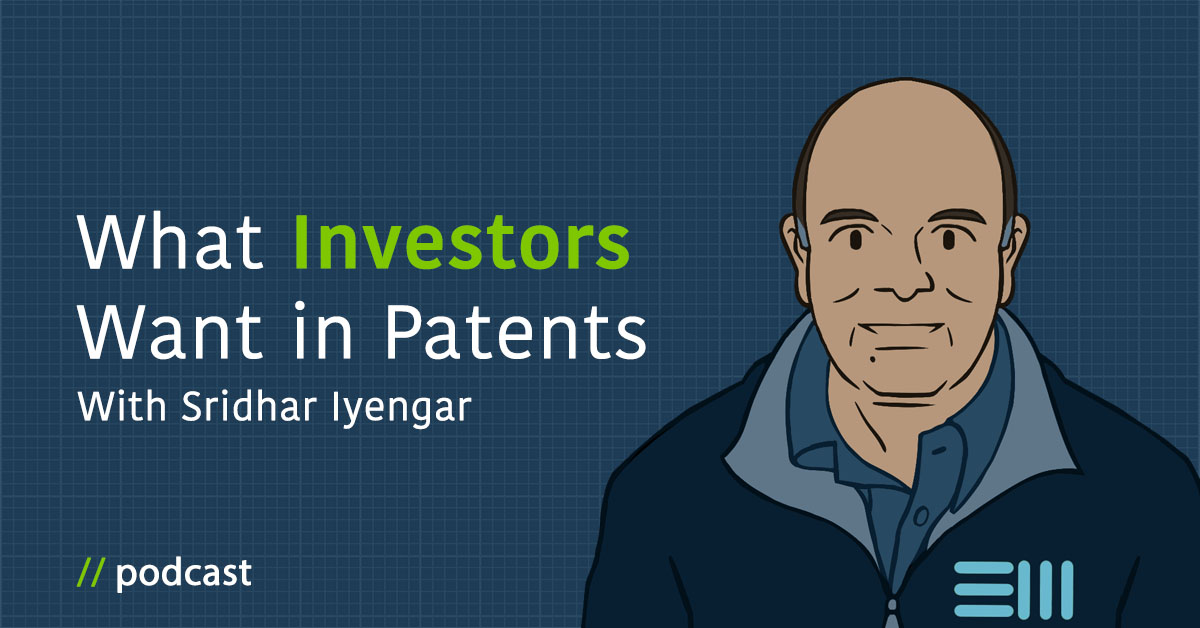
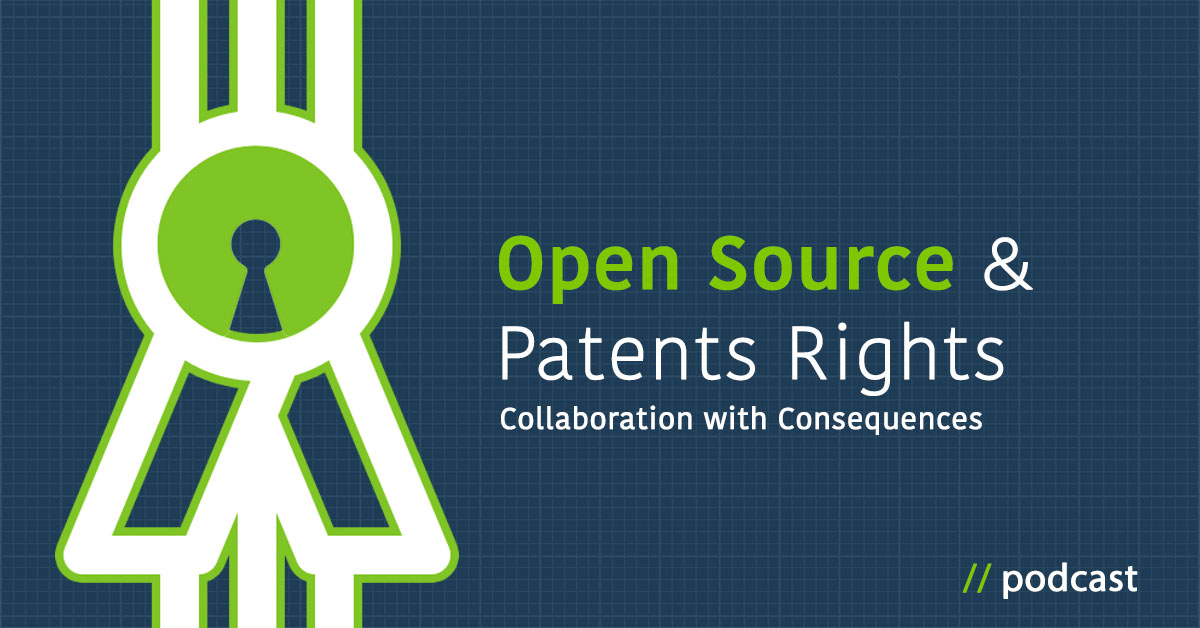
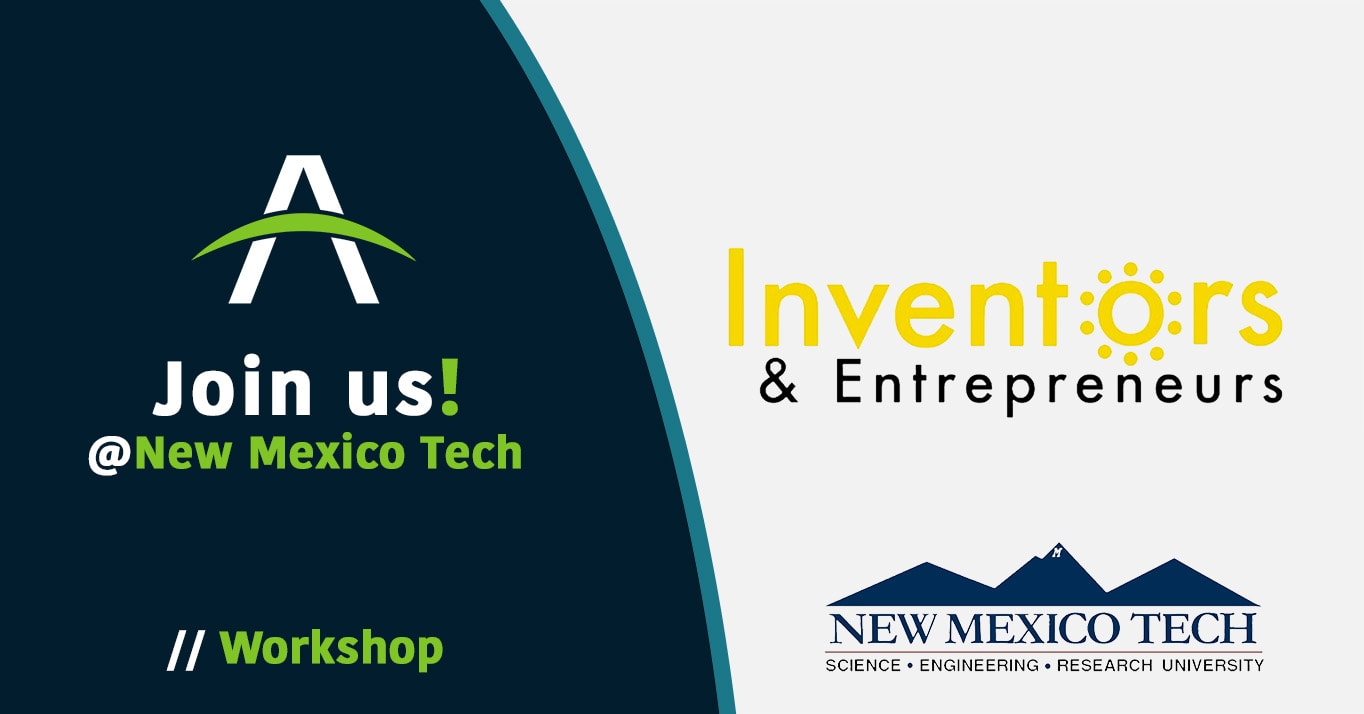
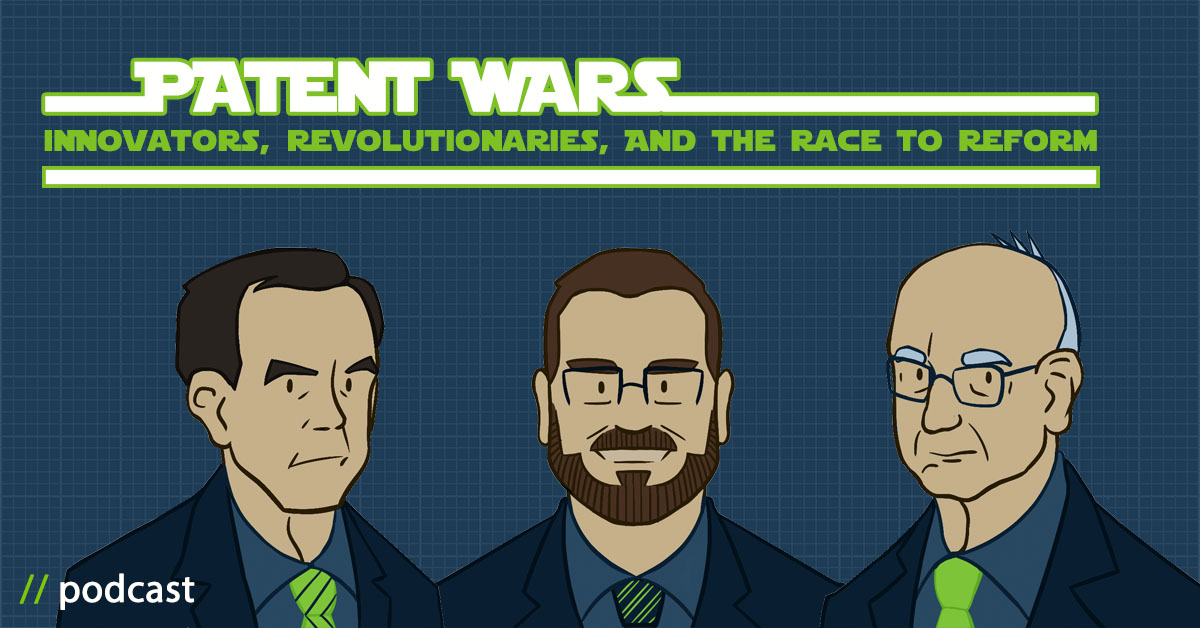


 RSS Feed
RSS Feed